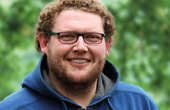How to read a scientific paper?
Date
23-26 March 2019 (interspersed with the Ecometabolomics course)
Location
UCAS, Yanqihu Campus, Beijing, China
Credit points
0.75 CP (20 hours of work)
Course Language
English
Target Group
Doctoral Researchers; interested Postdocs and PIs are welcome
Contents
Scientific research shows that the readability of scientific texts and abstract has decreased. This is amongst others due to a growing use of difficult words (jargon) in scientific papers (https://elifesciences.org/articles/27725). Moreover, scientific papers are written to be persuasive in nature. Reading scientific papers thus requires a specific skill set. In this course, students will train how to recognize the main elements (motive, objective, main conclusion, implication, support, counterarguments) in scientific papers. The course will consist of lectures, reading of scientific papers, group work and presentations.
Goal
In this course, the participants will learn how to read a scientific paper in an analytical way. At the end of the course, they should be able to identify the main elements (motive, objective, main conclusion, implication, support, counterarguments) of scientific papers and judge them on their (scientific) quality. They should be able to present a critical account of these elements in selected scientific papers in their field.
Didactic Elements
The course will consist of (interactive) lectures, group work – reading and analyzing papers – and group presentations. Selected papers will be made available at the start of the course.
You will need
Bring your laptop for downloading papers (PDF) and prepare presentations (PPT).
Expected performance
Participants should attend the lectures, read and analyze the papers assigned. They should all work in small groups, thereby taking turns in the roles in the group (chair, take notes for reporting, presenting the results). Each student must present the group result once.
Lecturer(s) in charge

Prof. Nicole van Dam
nicole.vandam@idiv.de
Nicole van Dam studied Biology at Wageningen University, Netherlands, which focus on plant physiology and phytochemistry. This was followed by a PhD in chemical ecology of plant-insect interactions at Leiden University, NL, and several postdocs in USA, Germany and Netherlands. Since 2014 she is research group leader Molecular Interaction Ecology (MIE) at iDiv and Full professor at the Friedrich Schiller University Jena, Germany. She designed, taught and coordinated the BSc course “Bachelor Essay” from 2011-2014 at the Radboud University Nijmegen. This course included a short paper reading workshop.

Dr. Alexander Weinhold
alexander.weinhold@idiv.de
Alexander Weinhold studied Environmental Chemistry at the Friedrich Schiller University Jena, which was followed by a PhD in chemical ecology of plant-herbivore interactions at the Max Planck Institute for Chemical Ecology in Jena, Germany. After postdocs in the USA and Belgium, he became postdoctoral researcher in the MIE group at iDiv in 2014. He is leading several research projects in metabolomics analyses of plants, with a specialization in LC-qToF-MS and GC-MS analyses of volatiles. He has taught in several PhD courses, a.o. Ecometabolomics and Plant Volatiles.
